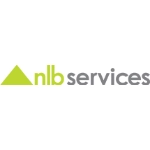© 2026 Next Level Business Services Inc. All Rights Reserved.
The Economic Impact of GCCs in India: 2025 Outlook
By NLB Services
Global Capability Centers (GCCs) are widely considered the cornerstone of India’s economic growth journey, shifting from their previous function of just back-office operation centers into potent hubs for innovation and development.
These offshore centers, established by multinational corporations (MNCs), are redefining India’s position in the global economy and notably contributing to boosting local economic growth. GCCs contribute to the development of local economies by creating high-value jobs that encourage innovation and attract foreign direct investments.
The prime objective that GCCs aim to achieve is to leverage the skills of the local workforce to enhance global operations, stimulating infrastructure and real estate development, mainly in Tier-I and II cities such as Bengaluru, Hyderabad, and Pune, where the majority of GCCs are set-up.
They are driving economic activity and contributing to the GDP of the country with a large pool of skilled talent present in India.
Currently, India has over 1,800 GCCs, employing about 1.9 million professionals. Forecasts show that by 2030, India’s GCCs will reach between 2,900 and 3,500, employing around 2.5 to 2.8 million, a major push in driving employment in the country.
2025 is a watershed year for GCC expansion as it marks the transition to a new era where GCCs are not just operational arms but strategic engines of growth, innovation, and resilience. The integration of AI, supportive policy frameworks, economic momentum, and the evolution of operating models collectively position GCCs at the forefront of global enterprise transformation. In this blog, we will take a deep dive into the economic impact of GCCs in India, their transformative role in India’s growth journey, and what lies ahead amid the ongoing challenges.
How GCCs Are Driving Foreign Investments & Growth
Global Capability Centers have emerged as a driving force in foreign direct investment (FDI) and economic growth in India. Their expansion is reshaping the landscape for both multinational corporations and local economies.
Significant FDI Inflows
One of the major contributors to FDI in India is GCCs. Considerable investments are made in GCCs by multinationals that not only cover the costs of setting up new centers but also fuel ongoing infrastructure upgrades, digital transformation, and technology adoption.
Activating Local Ecosystems
The existence of GCCs stimulates the development of supporting industries such as real estate, hospitality, and financial services, creating a multiplier effect across urban economies. Their expansion into Tier-2 and Tier-3 cities disperses economic opportunities, drives infrastructure improvements, and fosters balanced regional growth.
Job Creation and Talent Development
India hosts over 1800 GCCs employing about 1.9 million professionals. With more GCCs being set up in India and investing heavily in upskilling their workforce, the talent demand is sure to rise in the coming years. GCCs, through upskilling, are ensuring a steady pipeline of talent for global operations and retaining professionals within the country.
Innovation and Digital Transformation
GCCs have long transformed from cost-saving support centers to innovation hubs, managing advanced functions like AI, cloud computing, cybersecurity, and agile product development for global brands. This transformational shift has attracted further investment and positioned India as a key player in the global digital transformation.
Government Support and Sustainable Urban Development
The Indian government has incentivized GCCs through tax benefits, Special Economic Zones (SEZs), and streamlined regulations to attract and retain foreign investment in GCCs. The Union Budget 2025 focuses on creating a framework to create a more feasible infrastructure for GCCs to ensure tax stability and regulatory ease to reinforce India’s status as a preferred GCC destination. Moreover, the GCCs’ expansion in Tier-II and tier-III cities is a pivotal step for the emerging cities in driving the development of tech parks, better transportation, and other public services.
Key Industries Benefiting from GCC Expansion
Global Capability Centers (GCCs) are playing a pivotal role in the success of businesses across a variety of industries. Organizations are leveraging GCCs to streamline operations, improve efficiency, and access global talent. Here are the top industries where GCCs are most prevalent:
Information Technology
One of the earliest adopters of GCCs, the IT sector has many companies setting up centers to manage software development, research, and innovation. Many big companies like Microsoft, Google, and Accenture have been at an advantage by scaling their operations while fostering innovation and software products, cloud services, and more recently, prominently in Artificial Intelligence and Machine Learning. Establishing GCCs in strategic locations has enabled It companies to tap into skilled talent at a lower cost, drive technological advancements, and reduce turnaround times by multifold.
Financial Services
GCCs are playing a critical role in providing back-office operations, risk management, compliance, and the development of fintech solutions. They are also leveraging AI and predictive analytics for fraud detection, customer service, and process automation. Leading financial firms such as JP Morgan Chase & Co, Morgan Stanley, and Goldman Sachs are leveraging India’s GCC exosystem to enhance their global operations.
Healthcare and Life Sciences
Through GCCs, pharmaceutical companies and healthcare providers are streamlining their research and development, improving patient data analytics, and enhancing telemedicine capabilities. India’s skilled workforce is a key factor in attracting healthcare-focused GCC investments. The sector has witnessed new GCC establishments in recent years with a strong focus on AI-driven healthcare solutions. Also, healthcare GCCs are expanding their capabilities in predictive analytics and personalized medicine.
Engineering & Manufacturing
GCCs have emerged as key players in product design, automation, and smart manufacturing. Companies are utilizing India’s top engineering talent to develop AI-powered solutions for predictive maintenance and operations efficiency. The industry has seen significant investments to fast-track GCC development in India.
️Policy & Regulatory Changes Supporting GCC Growth
The sustained momentum of Global Capability Centers in India is a direct outcome of a responsive and forward-thinking policy ecosystem. This alignment is designed to solidify India’s position as the premier global destination for these vital operational and innovation hubs.
The Indian government’s approach to policy frameworks has been favorable, moving beyond the general ease of doing business to include targeted initiatives for the GCC sector. Key policy pushes include:
- Streamlined Operations: Simplified regulatory processes and single-window clearances expedite the establishment and expansion of GCCs.
- Geographic Diversification: Initiatives promote GCC growth in Tier-2 and Tier-3 cities, unlocking new talent pools and fostering regional economic development, supported by localized state incentives.
- Sector-Specific Support: Policies are increasingly tailored to encourage GCCs in specialized domains, such as semiconductors, R&D, and emerging technologies.
Complementing these policy measures are significant tax incentives that enhance India’s competitive edge. The fiscal environment aims to provide clarity and substantial benefits:
- SEZ Benefits: Continued income tax exemptions for export-oriented units within Special Economic Zones remain a significant draw.
- Broader Fiscal Advantages: Ongoing discussions and proposals aim to reintroduce certain tax holidays or offer concessional corporate tax rates for new GCCs.
- Operational Cost Reduction: GST exemptions for SEZ-based GCC services and duty-free import provisions for essential technology further reduce the total cost of ownership.
- Regulatory Clarity: Continuous efforts to refine transfer pricing norms provide greater certainty and minimize compliance complexities.
These integrated policy and fiscal advantages underscore India’s commitment to fostering a stable, attractive, and growth-conducive environment for global capability centers.
Future Trends: The Next Phase of GCC Expansion
The next phase of GCC expansion and the Economic Impact of GCCs in India will be characterized by profound industry transformations and an elevated global positioning. These shifts are fundamentally reshaping the strategic mandate and capabilities of GCCs, transitioning them from operational backbones to critical engines of innovation and competitive advantage.
Key industry transformation predictions include:
- AI-Driven Evolution: Pervasive adoption of Artificial Intelligence, Machine Learning, and Generative AI, positioning GCCs at the forefront of developing and deploying advanced solutions, leading to intellectual property creation.
- Value Chain Ascension: A definitive move up the value chain, with GCCs taking on more complex roles in product development, strategic analytics, and core R&D for their parent organizations.
- Specialized Centers of Excellence: A surge in dedicated Centers of Excellence focused on niche technologies and industry-specific innovation, driving deep domain expertise.
- Cross-Sectoral Expansion: Growth beyond traditional IT and BFSI, with increasing adoption by manufacturing, healthcare, automotive, and energy sectors for specialized R&D and digital initiatives.
India’s global positioning as the preeminent GCC hub is set to strengthen further, driven by:
- Unrivaled Talent Pool: Continued access to a vast, digitally skilled, and English-speaking talent base, differentiating India from global competitors.
- Strategic Value Creation: A shift from purely cost-arbitrage discussions to emphasizing India’s role in driving enterprise-wide digital transformation, resilience, and innovation.
- Time Zone Advantage: Unique geographic location enabling seamless 24/7 global operations, fostering faster project cycles and enhanced collaboration.
- Distributed Capabilities: Strategic development of Tier-2 and Tier-3 cities as viable GCC destinations, ensuring diversified talent access and operational resilience across the nation.
These trends highlight that Indian GCCs are not just supporting global operations but are actively shaping the future capabilities and strategic direction of multinational corporations.
Conclusion
The trajectory of Global Capability Centers or GCCs in India in 2025 signals robust and sustained growth. Also, the business transformation in India is fueled by a symbiotic relationship between a supportive policy regime, compelling fiscal incentives, and a dynamically evolving industry driven by cutting-edge technologies. India’s unparalleled talent, strategic positioning, and commitment to innovation firmly establish it as the definitive global leader for GCCs.
For senior leadership within GCC businesses and global recruitment firms, this represents a critical window of opportunity. It’s imperative to deepen your engagement with the Indian market – not just to optimize operations, but to strategically leverage its unique ecosystem for innovation, talent acquisition, and long-term value creation.
To know more about the opportunities within India’s thriving GCC landscape and gain in-depth insights, we invite you to Download our exclusive report by clicking this link.
Talent Solutions








